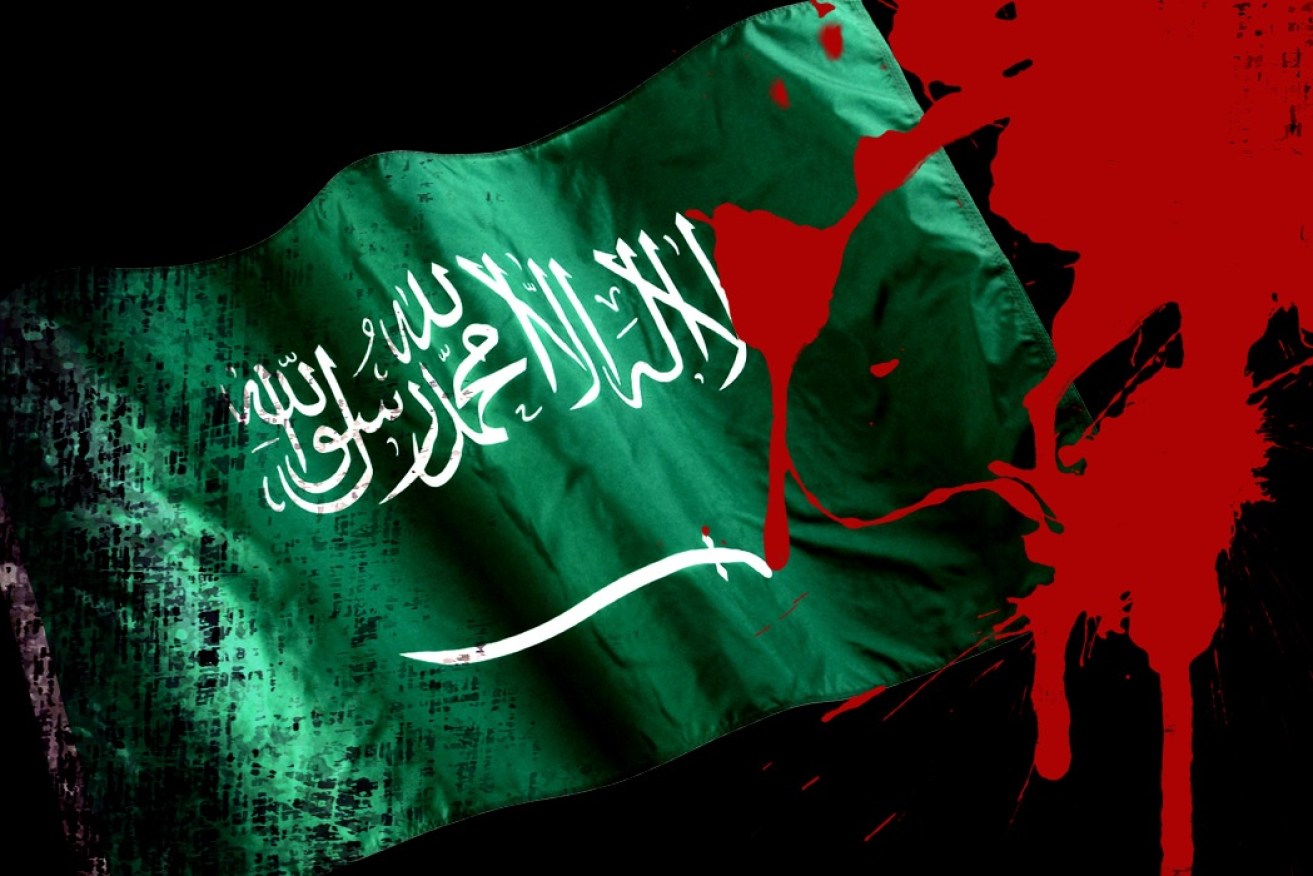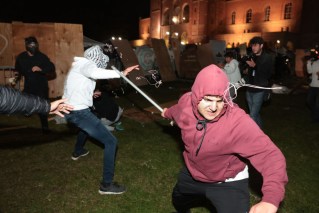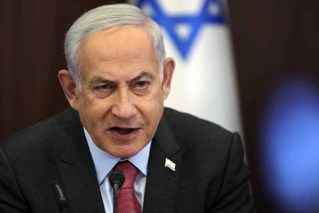Lifting the veil: What life is like inside modern Saudi Arabia


Saudi Arabia's Crown Prince was hailed as a moderniser, but the murder of a journalist in Turkey has revealed a darker side. Photo: Getty
The Rosewood Hotel in Jeddah, Saudi Arabia, sprawls elegantly in the fashionable northern corner of the city alongside the Red Sea and close to designer shopping districts.
Its 101 rooms and 26 suites start around $423 a night, personalised stationery is printed for guests on arrival and its four restaurants serve everything from modern Japanese to Viennese pastries.
On the roof of the hotel is a luxe seaview pool, sauna and steam rooms, with access to a state-of-the-art fitness centre. The wellness facilities are missing just one thing: Women.
Welcome to one of the contrasts that makes Saudi Arabia one of the world’s most fascinating and terrifying countries.

Giant shopping malls are common in Saudi Arabia’s capital, but that’s where the comparison to Western democracies ends. Photo: Getty
In Jeddah and the Saudi capital Riyadh, giant modern shopping malls are built next to crumbling historic mud-brick homes. Restaurants abound, but men and women are segregated. And clients are ushered from high-end shops five times a day as the call to prayer sounds from minarets across cities.
The alleged killing of dissenting Saudi Arabian journalist Jamal Khashoggi in the country’s embassy in Turkey has framed the kingdom as a regime of brutality and ruthlessness.
But domestically, under the rule of controversial Crown Prince Mohammed bin Salman, 33, (known as MBS) a more liberal era has been shepherded in.
Since June, women have been allowed to drive. Music – previously banned even in elevators – can now be played publicly. Movie theatres are opening for the first time in 35 years.
Still, despite its five-star hotels and sophisticated shops (nobody gets in the door at D’NA boutique in Riyadh without a membership or invitation from co-founder Princess Deena Abdulaziz), the kingdom is far from a contemporary playground.
“MBS has been hailed by some in the West as a moderate reformer” and has “introduced some measures that made Saudi Arabia look a bit more modern than in the past,” Dr Robert Patman, Professor of International Relations at New Zealand’s University of Otago told The New Daily.
“But essentially this is a very conservative regime.
The fancy hotel lounges serve only virgin bellinis and Kir royales, and capital punishment is a standard legal penalty based on a hardline form of Sharia law.
Last year at least 146 people were executed, many publicly beheaded with a sword and some then crucified.
A recent report by the European Saudi Organisation for Human Rights (ESOHR) claimed the number of beheadings in the kingdom during the first quarter of 2018 increased by more than 70 per cent compared to the same period last year.
In Riyadh, where tourists can organise bespoke desert tours and dining experiences with a professional photographer to capture every mouthful, executions take place after Friday prayers in a public space colloquially called Chop Chop Square.
The state-instigated violence is part of Saudi Arabia’s DNA at home and, seemingly abroad, following the October 2 murder of Mr Khashoggi in the Saudi embassy in Istanbul by an apparent kill squad.
It is also part of MBS’s makeup, according to The New Yorker, which said his “violent, impulsive character was visible early on”.

Saudi Crown Prince Mohammed bin Salman is omnipresent on billboards in Riyadh. Photo: Getty
The magazine reported that a confidant of the prince told how, in his younger days, MBS tried to force a land registry official to help him seize a parcel of property.
When the official balked, MBS sent a single bullet in an envelope to help change his mind. On the Saudi streets, MBS became known as Abu Rasasa, or “father of the bullet”.
Inside the Kingdom
Life in Saudi Arabia “does feel very alien for someone with Western sensibilities,” Curtin University Middle East affairs expert Dr Ben Rich, who lived in the kingdom in 2011, told The New Daily.
“As a Western white male, I got eyeballed by the police. I definitely felt a big divide between us and the community.
Usually in a foreign country, you can hang out and experience the culture. That’s not the case in Saudi Arabia.”
For those living and working in the kingdom, everyday life is – on the surface at least – less harsh. Under the prince’s rule, even strict clothing rules have been quietly relaxed. Women in the streets can now get away with wearing abayas, the traditional long robes, in colours other than black.
Before the crown prince took power, the social reform changes had been talked about but not acted on for decades.
“To his credit, he did this stuff in a relatively short period of time,” Rodger Shanahan, a former Australian Army officer and international relations research fellow at The Lowy Institute for International Policy, told The New Daily.
But the prince is “a moderniser in social terms, not politically”, Dr Shanahan added.
“He’s shown a dead hand at foreign policy, very poor judgement. He’s made a lot of missteps on the international stage.”
Curtin University’s Dr Rich lived and worked in Saudi Arabia for about six months, and said he won’t be going back.
“I wouldn’t feel safe working over there any more,” he told The New Daily.
It’s becoming increasingly dangerous for researchers – and journalists – anyone who’s asking critical questions.
Freedom of the press is still restricted, according to human rights organisations, and very little political dissent is tolerated, with due process a work in progress.
Blogger and dissident Raif Badawi, 34, creator of website Free Saudi Liberals, was arrested in 2012 on a charge of “insulting Islam through electronic channels”.
Convicted on several charges, he was sentenced to seven years in prison and 600 lashes. In 2014 his sentence was increased to 10 years in prison, 1000 lashes and a fine.
The first 50 lashes were administered in 2015, and the second flogging has been postponed more than 12 times.
Mr Badawi’s wife Ensaf Haidar, who fled to Canada, said her husband will not survive future floggings.
When Dr Rich lived in Saudi Arabia, the public spaces were very male-dominated. “The most common public activity was hanging out at cafes and smoking water pipes,” he said.
Even now with women having more access to education and being allowed to drive, regardless of age, all women are still treated as second-class citizens,” Dr Rich said.
“They have more economic freedom – they can work in healthcare or in a shop – but are still restricted in terms of their legal rights. There’s a long way to go.”
While American fast-food franchises jostle with local chains (Al Baik fried chicken, Kudu sandwiches, Herfy Burger) and curry and kebab houses, attitudes towards customers aren’t as international.
Riyadh’s Mirage Restaurant is among the few restaurants where mixed gender business groups can dine together. The best tables are placed on top of this Taiwanese restaurant’s illuminated fish tanks.
“Once when we went out to a cafe, we got screamed at by a couple of local dudes and got shepherded away,” said Dr Rich, who recalled family sections where women can dine being curtained off at venues.
It turned out that we had sat in the male section and we had females among our group. This was just seen as unacceptable.”
Westerners working in Saudi Arabia live in specially-built, heavily-fortified compounds, with “basic facilities like a pool and a very worn gym,” said Dr Rich, who remembered “people holding machine guns out the front when you drive into the compound.”
Food was provided at communal meals, and “Living in the compound, there wasn’t a lot to do. A lot of people were just there for the pay cheque,” Dr Rich told The New Daily.
“One Polish guy lived there for some years and his wife hated it. She couldn’t go out in public on her own.”
Given there’s no nightclubs or bars – alcohol is forbidden (haram) under Sharia law – young people hang out mostly in modern malls.
Jeddah, considered the most western of Saudi Arabia’s cities, has more than 90. Riyadh’s main roads are lined with them, with the third floor of the upscale Al Mamlaka reserved solely for women (although there are no fitting rooms.)
There are also traditional souks selling touristy items such as swords or handcrafts, but many are made in other countries including Slovenia. And there aren’t many tourists to buy things anyway.
Australians can fly into Jeddah with connections to hub cities, but “there are only tourists visas issued to approved tour groups, which is very rare,” Karen Hofman, travel expert and former Flight Centre consultant of 12 years, told The New Daily.
“You must be sponsored and be travelling for business purposes or to visit close family.”
Visas take ‘a long time’ to issue and nobody with an Israeli stamp in their passport will be admitted. It is a difficult experience if you are not Muslim as you need to have a good explanation of why you are going there.
Just last week, Roland Jabbour, the chair of the Australia Arab Chamber of Commerce and Industry, made one of his regular visits to Saudi Arabia, and agrees it’s not a tourist destination as such.
“But it’s heading in that direction,” he told The New Daily, saying Australia’s “overall view of that region is unfortunately a negative one … often we see the Hollywood image of the Arab villain”.
What will happen now in Saudi Arabia as the screws tighten over the Khashoggi situation?
“It’s not going to cause regime change,” said Dr Shanahan, who has previously been posted to the Australian embassy in Riyadh.
“What could happen is that MBS has made lots of enemies. He has aggregated power, sidelined people who could be threats within the royal family and replaced them with people who are more amenable to him.
“There are plenty of people who will want to see him fall – but has he been so effective as to neuter the opposition? Nothing will happen to the Royal family, but [the Khashoggi murder] is a doozy of an error.”
By Kate Halfpenny with reporting by Rachel Eddie, Isabelle Lane and Alana Mitchelson








